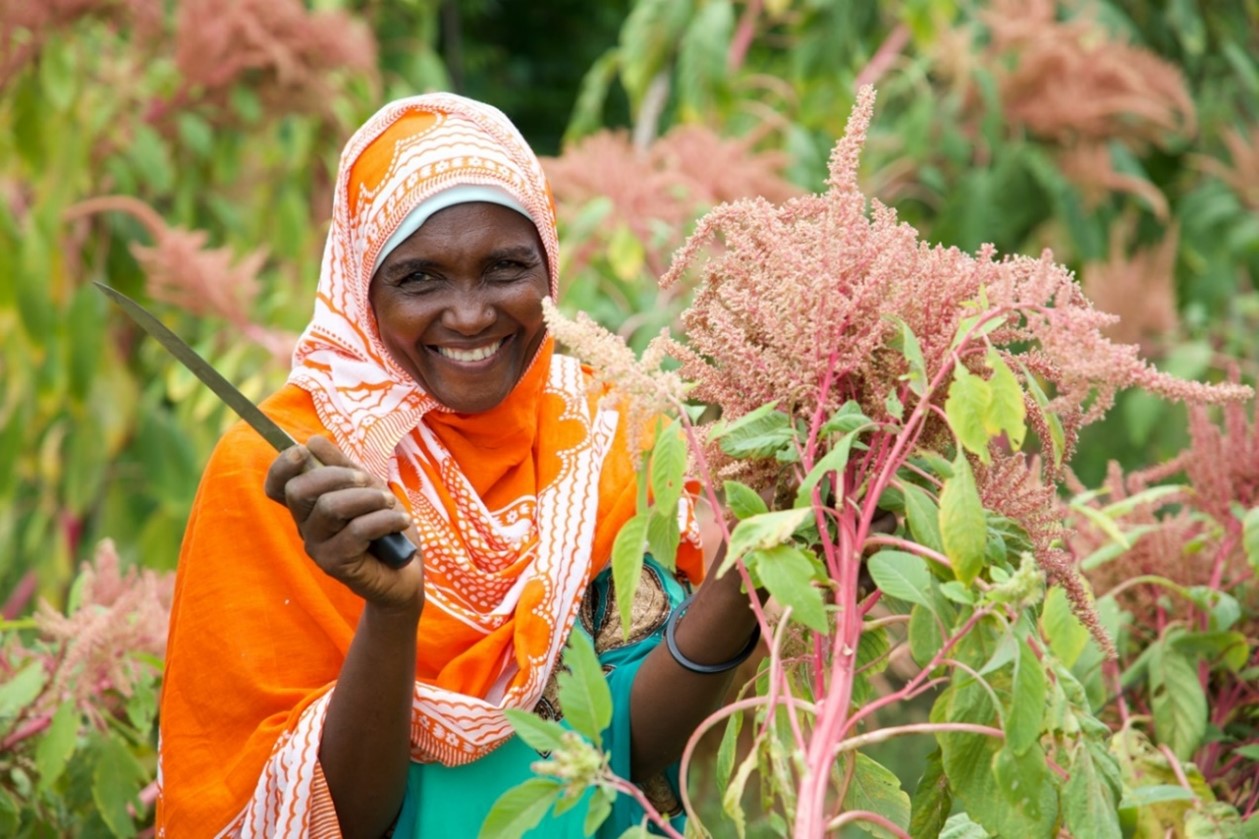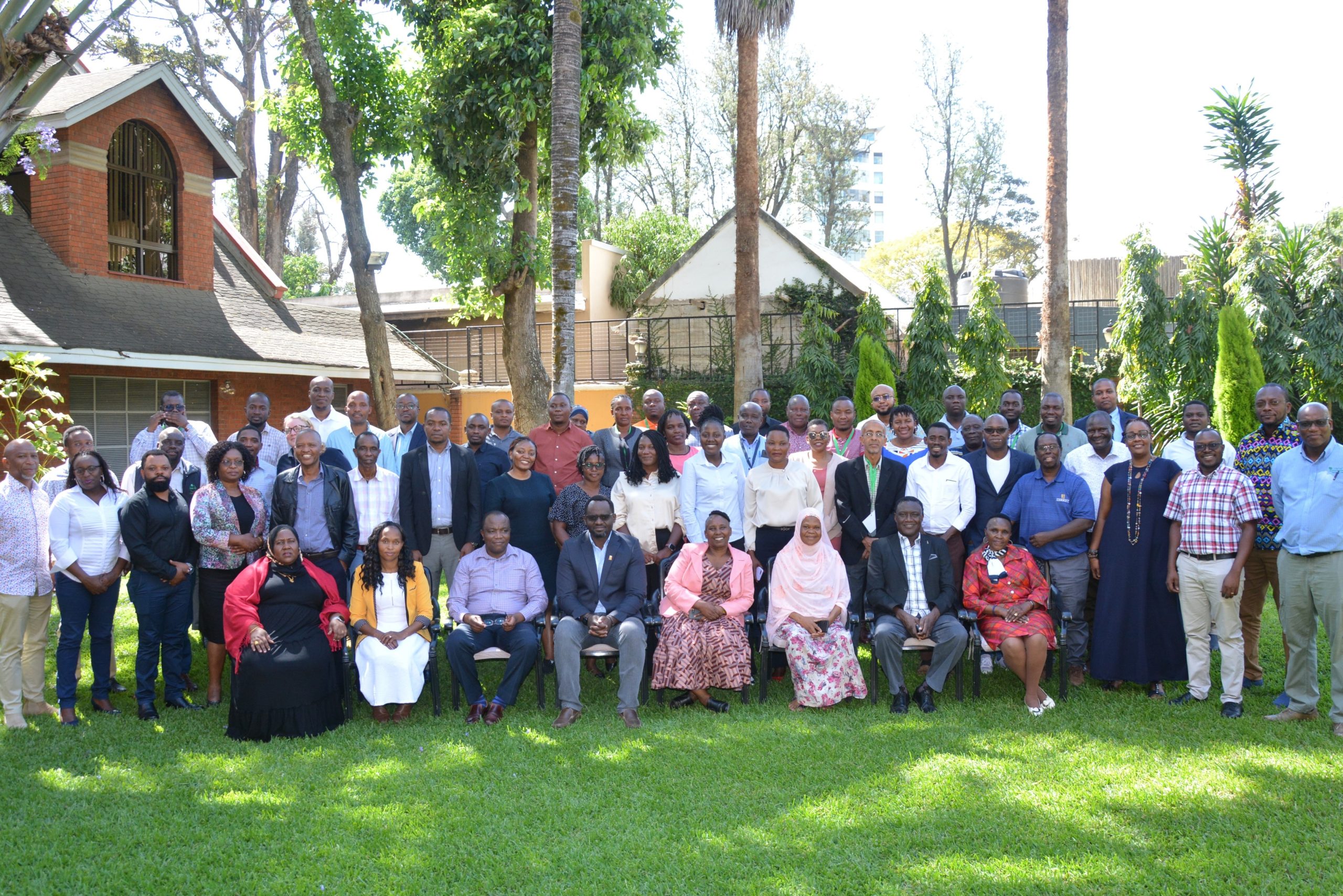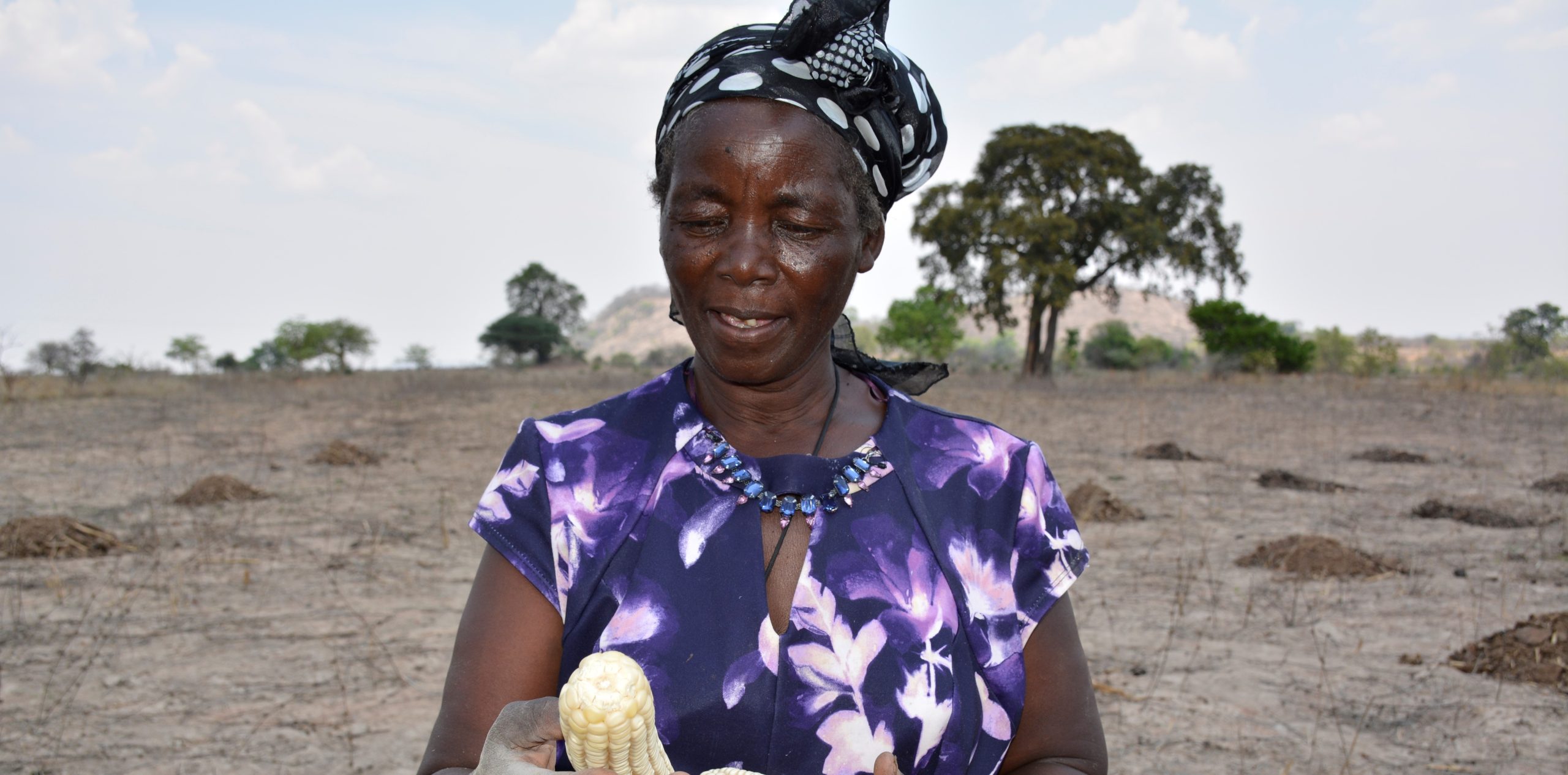Rebecca Benson, a 30-year-old mother of three from Igurusi village in Mbeya, Tanzania, is living proof of how small efforts against food loss can significantly impact people’s lives. Her journey unfolded during a recent USAID field mission in Tanzania for CIMMYT’s Southern Africa Accelerated Innovation Delivery Initiative (AID-I) project when we visited a grain storage facility operated by the Igurusi Agricultural Marketing Cooperative Society (AMCOS). This local cooperative provides storage facilities and connects rice farmers to buyers, ensuring their produce is preserved and marketed efficiently. The warehouse stores over 1,000 tons of paddy, which is dried, stored, and ready for market.
As we toured the warehouse, we noticed that between the collection and storage of produce, small amounts of paddy had spilled onto the ground. Although this might seem like a minor oversight, it quickly became clear that what could have been discarded as waste was, for some, a valuable resource.
Turning Food Loss into Livelihood
A few meters away, we noticed Rebecca winnowing paddy. Intrigued by the picturesque scene of wind blowing away chaff, we approached her and soon discovered her remarkable story. Initially shy, Rebecca gradually opened up to us and shared her story of resilience and great inspiration. Four years ago, Rebecca left a comfortable life for one filled with struggle. She had been in an abusive marriage but decided to rebuild her life after an altercation with her husband almost turned fatal.
“He would drink and become very violent. I had endured a lot but realized that he might one day kill me. I was very scared,” Rebecca narrated.
Starting life on her own and without access to her family’s land, she struggled to continue her rice farming, facing the overwhelming costs of leasing land and maintaining a farm. As her situation worsened, she found it increasingly difficult to provide for her children.

In her quest for survival, Rebecca began collecting waste paddy from spillage at the AMCOS warehouse. Initially, after threshing, it was just enough for her family to feed on, but she soon realized she could sell some of the rice to generate income. With the cooperative’s permission, she started collecting, cleaning, and selling the grains at Tsh 700 per kilogram. On average, Rebecca gathers over 20 kg of rice daily, which helps her pay rent, school fees, and feed her family. Although a tedious task to sift through the soil and rocks, Rebecca does it enthusiastically.
While she hopes to one day acquire land and return to farming, Rebecca remains grateful for the opportunity she has now. “It is hard work, and I want to improve my life and that of my children. I have not been able to save enough to lease land for farming, but that is my goal,” she said. The work also keeps her busy and has granted her independence from her abusive partner, allowing her to support her family on her own.
The Reality of Post-Harvest Grain Loss
In Sub-Saharan Africa, post-harvest grain loss amounts to millions of dollars in lost revenue and a reduction in food security due to inadequate storage facilities and improper handling during drying and transport. While AMCOS works hard to preserve crops and prevent large-scale food loss, the small quantities of spilled rice are an unavoidable consequence of handling large volumes. For Rebecca, however, these spilled grains represent a lifeline. Through her resourcefulness, she has turned what could have been wasted into an opportunity, providing her family with food and financial stability.

 Capacity development
Capacity development 
